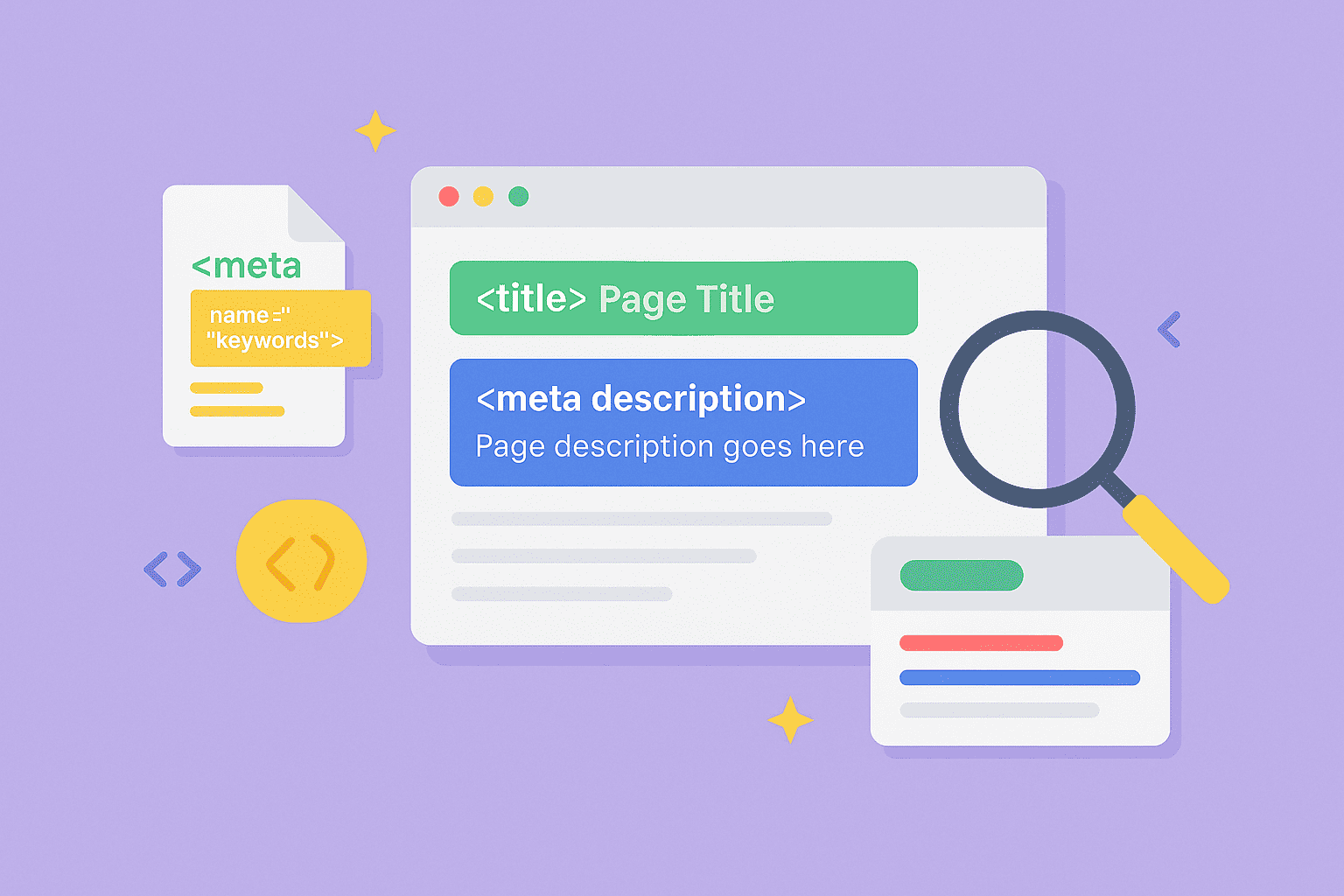Meta Tags for SEO: The Ultimate Guide to Better Rankings

1. What Are Meta Tags?
Meta tags are snippets of code in the <head> section of a webpage that describe the content of the page to search engines and browsers. While they’re not always visible to users, they play a key role in SEO.
2. Essential Meta Tags for SEO
🏷️ Title Tag
Appears as the clickable headline in search results.
Google often considers it the strongest on-page ranking factor.
Best practices:
Keep under 60 characters.
Include primary keywords naturally.
Make it compelling for clicks.
📝 Meta Description
Appears as the snippet under the title in SERPs.
Doesn’t directly affect rankings, but strongly influences CTR.
Best practices:
Keep under 155–160 characters.
Summarize the page clearly.
Add a call-to-action (e.g., “Learn more,” “Start today”).
🔗 Canonical Tag (rel="canonical")
Prevents duplicate content issues by telling search engines which URL is the “master” version.
Helps consolidate link equity.
📱 Viewport Meta Tag
Ensures pages display properly on mobile devices.
Essential for mobile-first indexing.
🚫 Robots Meta Tag (noindex, nofollow)
Tells search engines not to index or follow certain pages.
Useful for thank-you pages, admin dashboards, or duplicate content.
📊 Open Graph & Twitter Cards (for Social SEO)
Control how your content looks when shared on Facebook, LinkedIn, Twitter.
Improve social CTR and brand presence.
3. Advanced Meta Tags
Meta Keywords: Largely ignored by Google, but some minor search engines still use them.
hreflang: Helps define language and region targeting for international SEO.
X-Robots-Tag: A server-level equivalent of meta robots, useful for non-HTML files like PDFs.
4. Why Meta Tags Still Matter
Even in 2025, meta tags influence:
How your brand appears in SERPs.
Whether a user chooses to click your result.
How search engines understand page context.
Optimized meta tags are low-effort, high-return SEO tasks — but too many businesses still overlook them.
5. Quick SEO Meta Tag Checklist
Unique title tag for every page
Compelling meta description with target keywords
Canonical tags for duplicate pages
Robots meta tag for non-public URLs
Proper viewport tag for mobile
Social sharing tags for better engagement
Conclusion
Meta tags may not guarantee overnight ranking boosts, but they are critical for shaping how both search engines and users perceive your site. Think of them as your first impression in Google’s search results — if you don’t optimize them, you’re leaving clicks (and traffic) on the table.
👉 Action Step: Audit your website today with tools like Screaming Frog, Ahrefs, or SEMrush to spot missing or duplicate meta tags and fix them immediately.